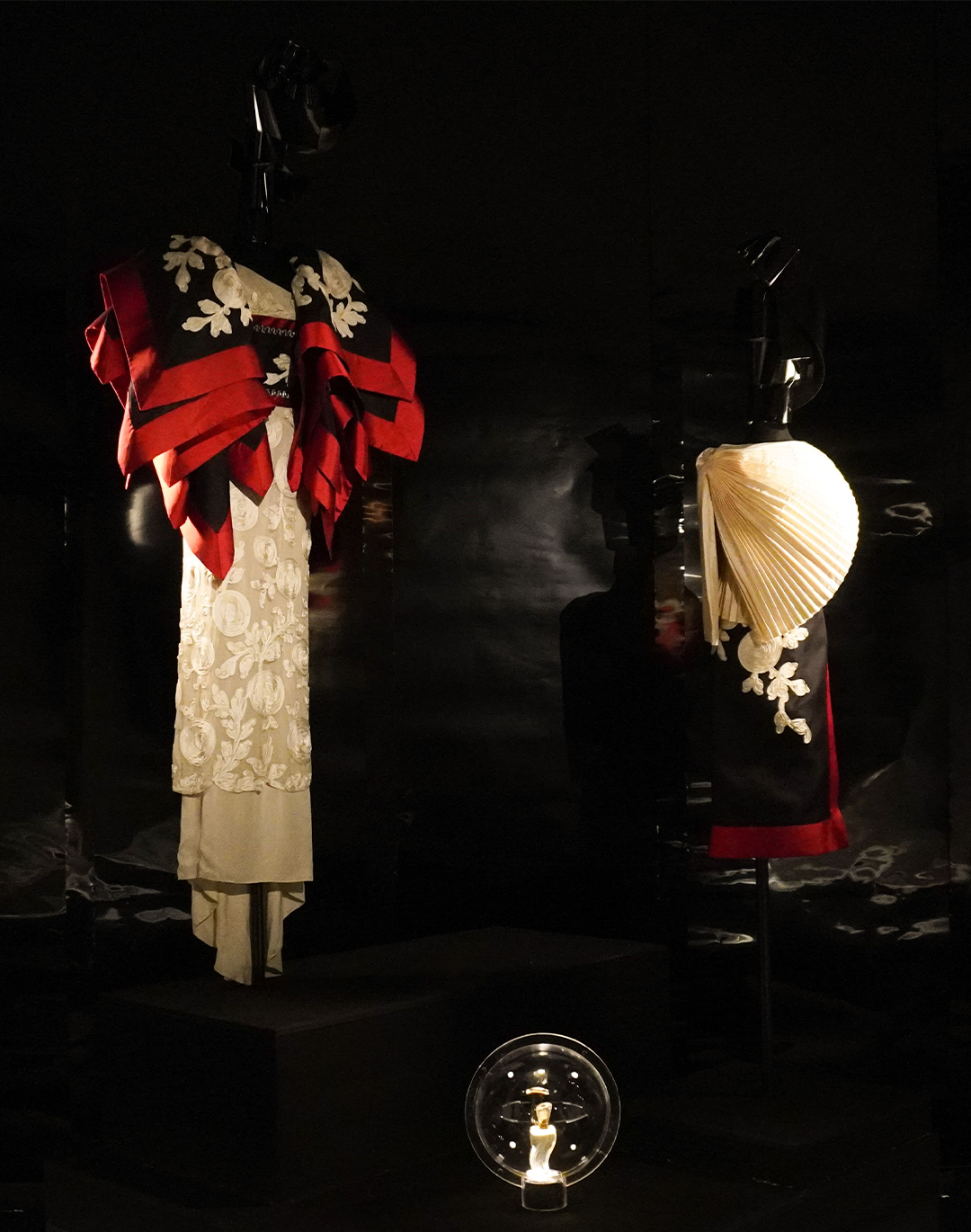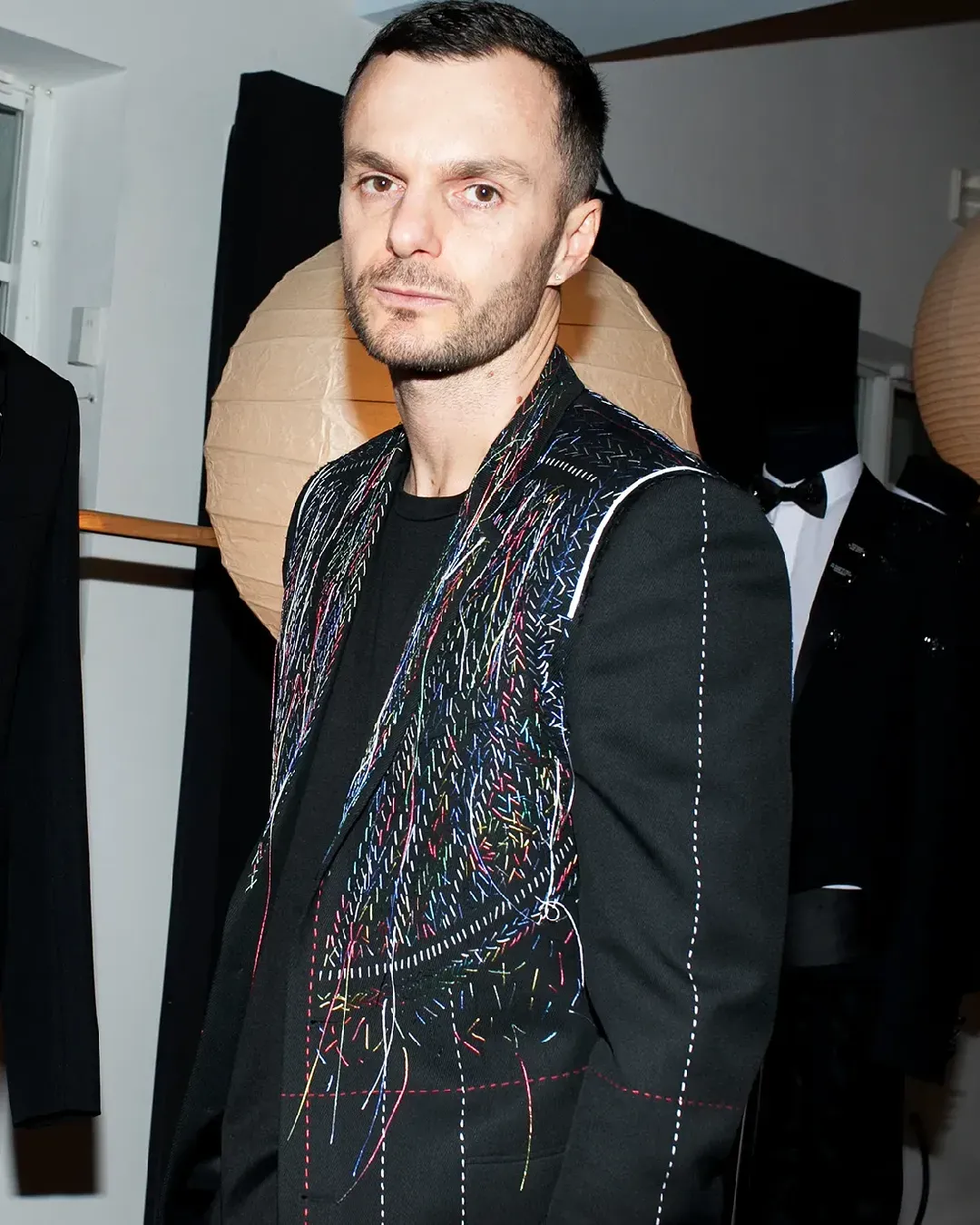
The meaning of post-luxury according to Stefano Pilati Random Identities' theory of affective independence
If Stefano Pilati had founded his brand in 2023 or 2024, keeping everyone on the edge until the very last second before sending out the final press release, he would most likely have achieved the same media success as Phoebe Philo. Not only because the Italian designer has become the most desired model by the underground scene in Berlin, guest designer of Fendi or recruited on the runway by Pharrell Williams in person, but because of his own creative manifesto: brutally authentic to the core. Pilati is not a designer who needs long introductions or footnotes to his career or creative directions: he boasts a CV with experiences at Cerruti, Armani, Prada, and Miu Miu, revived Saint Laurent's sales from 2004 to 2012 and held the role of creative director at Zegna and Agnona. For him, fashion «is under your fingers when you touch the fabric. It's in your eyes when you pick up a garment that no one else has taken, things you didn't know existed or that you would never wear, and then you wear it and it changes your life. It's your intuition,» as he recounted in an interview with The Talks a few years ago.
Random Identities was born in 2017 on Instagram, launched on the platform's stories by Meta to test the sentiment of a community linked to Stefano Pilati's aesthetic imagery with the sharing of 17 looks in the style of still life. On IG, the account has 15 posts, 45 thousand followers, and 49 accounts followed; the website, among impeccable tailored jackets and genderless styling that would easily capture David Bowie's attention, includes an about section housing the brand's identity testament: «Insert identity. The customer's freedom to customize the logo is a way to demonstrate that we respect the uniqueness of our customers. The label arises from a traditional form of engagement with the end consumer where the sense of exclusivity typical of Couture and bespoke is replaced by the tangible experience of those who take possession of the purchase.»
random identities by stefano pilati pic.twitter.com/YyHEwR2Gjl
— elena (@givemethecoins) August 23, 2023
Random Identities' first release was a work of rewriting the act of dressing - centimeters and centimeters of black fabrics, made in Italy, cut according to the viewpoint of a designer who is not interested in creating a product steeped in redundancies. «Random represents the randomness of existence, and Identities is the response to that randomness. The two terms define the space in which people can identify not with trends, but with personality, function, quality, and design.» Stefano Pilati's project, wanting to make it a sort of exegesis in hindsight, fits into a current of thought that eludes the concept of seasonality, of occasionality, and traditional presentation methods. Random Identities not only reproduces the visual transposition of a Berghain chic loudly claimed by a particularly active community of Berlin clubbers on Instagram, but it is a fabric cloud of answers to the problems of the fashion world in the vision of its creative director. «Exclusivity no longer exists! All exclusivity is based on: Oh, how much did you pay for it» he said dismayed to GQ during the 97th edition of Pitti Uomo. Random Identities exists in a post-luxury world «where you can buy a made in Italy double-breasted blazer for $ 430, or a pair of eye-catching cut pants for just over $ 200, prices achieved thanks to its deep connections in the world of production and suppliers» explained Samuel Hine to the magazine. Pilati, besides rejecting the idea of gender binary as a method of conception and production of clothing, also commits to creating only one prototype before finally sending it into production. His products are available on SSENSE and Dover Street Market, the concept store chain created by Comme des Garçons.
Random identities by Stefano Pilati.
— Ailèen (@linaopayets) March 7, 2019
(Images via i-D Italy) pic.twitter.com/NXMj8r5399
Not all blazers are equal, nor are those who design their details. Let's go back to Random Identities' clothing and go back online, to the brand's website: a sort of ground zero of storytelling, stripped down to the bone even in product descriptions, telegraphic even in tone of voice. Those who end up on the page in question probably seek functional, modular, and high-quality garments, but above all, they do not need novels sewn onto the clothes, referring primarily to the work of the creative director. Eighteen looks, 324 potential combinations. The first one consists of a black 3/4 single-breasted coat, in wool cloth, equipped with a closure at the bottom where 4 buttons are arranged along the sides and a white poplin shirt, with the logo embroidered on the collar, which can also be used as a dress. The last one, instead, makes use of three pieces: a raglan crewneck sweatshirt with a zip at the back paired with a gabardine skirt with pleats and the 9 cm heel calf leather workwear boot. In between: blazers with drawstrings, spotted coats and egg-shaped ones or jumpsuits with V-necklines carried over on male bodies that could easily serve without any opposition to the female counterpart.
«My perspective is that you make clothes yours the moment you wear them. I propose something that comes from me, but I give it to someone else and then this someone else makes it theirs. Therefore, randomly, it becomes an identity that effectively interacts with the entire brand's ethos» explained Pilati. Rather than focusing on deconstructing clothes or making them subversive, Pilati's work lies in an area of intersection between design and pragmatics that plays on the infinite possibilities of garment combinations. «I'm learning to be independent. But the hard part is that, since Random Identities was launched, I have never received criticism». The output of what is now no longer classifiable as the beta version of a brand born on Instagram, according to Pilati himself in a brief phone conversation of which there is a trace in the New York Times, is precisely «beyond». On the brand's Instagram feed, to conclude, you can see the latest collection of the brand, FW24, provided only with credits and references to the review on Vogue Runway — the path of those who believe that «chic cannot be sold, but certainly suggested».












































